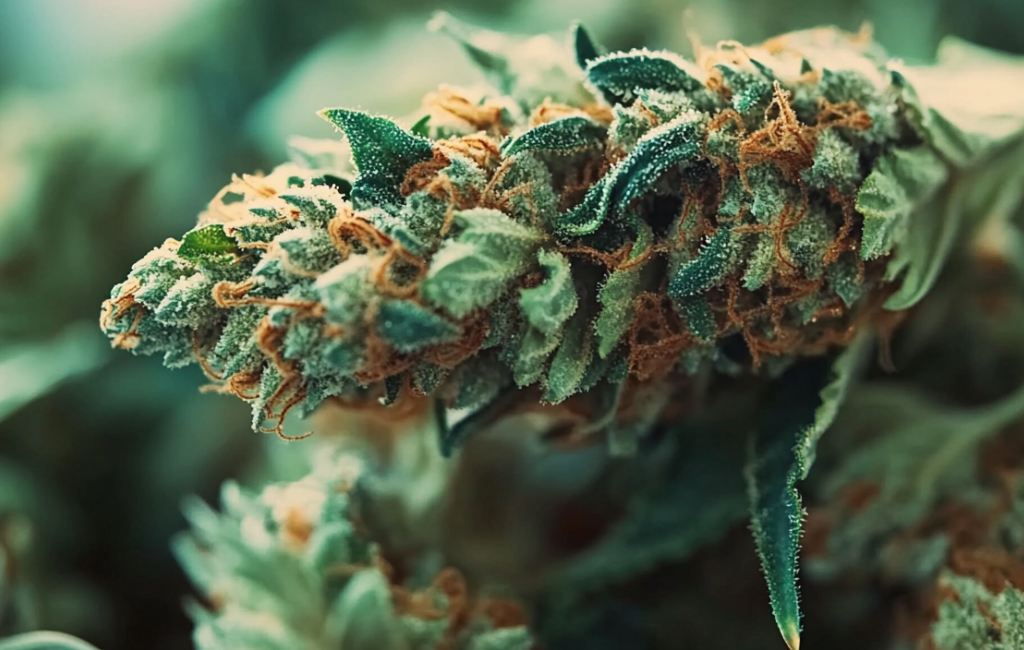THCA Flower: Benefits and Uses
THCA, or tetrahydrocannabinolic acid, is a non-psychoactive cannabinoid found in raw and live cannabis. Unlike THC, THCA does not produce a high, making it an attractive option for those seeking the therapeutic benefits of cannabis without the psychoactive effects. This article explores the benefits and uses of THCA flower, providing valuable insights for both new and experienced users.
What is THCA?
THCA is the acidic precursor to THC. When cannabis is in its raw form, it contains THCA rather than THC. Through a process called decarboxylation, which involves heating the cannabis, THCA converts to THC. This conversion is what gives cannabis its psychoactive properties. In its raw form, THCA offers a range of potential health benefits without the high associated with THC.
Health Benefits of THCA
Research into THCA is still in its early stages, but preliminary studies and anecdotal evidence suggest several potential health benefits:
- Anti-inflammatory Properties: THCA has shown promise in reducing inflammation, which can be beneficial for conditions like arthritis and other inflammatory diseases.
- Neuroprotective Effects: Some studies suggest that THCA may help protect brain cells, potentially offering benefits for neurodegenerative diseases such as Alzheimer’s and Parkinson’s.
- Anti-emetic Properties: THCA may help reduce nausea and vomiting, making it a potential option for those undergoing chemotherapy or suffering from other conditions that cause nausea.
- Antioxidant Properties: THCA has been found to have antioxidant properties, which can help protect cells from damage caused by free radicals.
Uses of THCA Flower
THCA flower can be used in various ways to harness its potential benefits:
Raw Consumption
One of the simplest ways to consume THCA is by eating raw cannabis. This can be done by adding raw cannabis leaves or buds to smoothies, salads, or other dishes. Consuming raw cannabis allows users to benefit from THCA without the psychoactive effects of THC.
Juicing
Juicing raw cannabis is another popular method of consuming THCA. By juicing the leaves and buds, users can create a nutrient-rich drink that provides the benefits of THCA along with other vitamins and minerals found in the plant.
Tinctures and Oils
THCA can also be extracted and used in tinctures and oils. These products can be taken sublingually (under the tongue) or added to food and drinks. Tinctures and oils offer a convenient way to consume THCA and can be easily dosed to meet individual needs.
Topicals
Topical products containing THCA, such as creams and balms, can be applied directly to the skin. These products are often used for localized pain relief and inflammation. Since THCA does not penetrate the bloodstream when applied topically, it provides targeted relief without psychoactive effects.
Case Studies and Research
Several case studies and research projects have highlighted the potential benefits of THCA:
Case Study: Arthritis Relief
A 2013 study published in the journal “Phytotherapy Research” examined the effects of THCA on inflammation and pain in rats with arthritis. The study found that THCA significantly reduced inflammation and pain, suggesting potential benefits for human arthritis patients.
Research on Neuroprotective Effects
A 2012 study published in the “British Journal of Pharmacology” explored the neuroprotective effects of THCA. The researchers found that THCA helped protect brain cells from oxidative stress, indicating potential benefits for neurodegenerative diseases.
Anti-emetic Properties
Anecdotal evidence from patients undergoing chemotherapy suggests that THCA may help reduce nausea and vomiting. While more research is needed, these reports indicate that THCA could be a valuable option for managing chemotherapy-induced nausea.
How to Source Quality THCA Flower
When looking for THCA flower, consider the following tips to ensure you are getting a high-quality product:
- Lab Testing: Look for products that have been lab-tested for purity and potency. Lab reports should be readily available from reputable suppliers.
- Organic Growing Practices: Choose products grown using organic practices to avoid exposure to pesticides and other harmful chemicals.
- Reputable Suppliers: Purchase from reputable suppliers with positive reviews and a history of providing high-quality products.
Potential Side Effects
While THCA is generally considered safe, some users may experience side effects. These can include:
- Dry Mouth: Some users report experiencing dry mouth after consuming THCA.
- Digestive Issues: In rare cases, users may experience digestive issues such as stomach upset or diarrhea.
- Allergic Reactions: Although uncommon, some individuals may have allergic reactions to cannabis products.
Conclusion
THCA flower offers a range of potential health benefits without the psychoactive effects of THC. From reducing inflammation and protecting brain cells to alleviating nausea, THCA presents a promising option for those seeking the therapeutic benefits of cannabis. Whether consumed raw, juiced, or used in tinctures and topicals, THCA provides a versatile and effective way to incorporate cannabis into a wellness routine. As research continues to uncover the full potential of THCA, it is likely to become an increasingly popular choice for health-conscious consumers.
